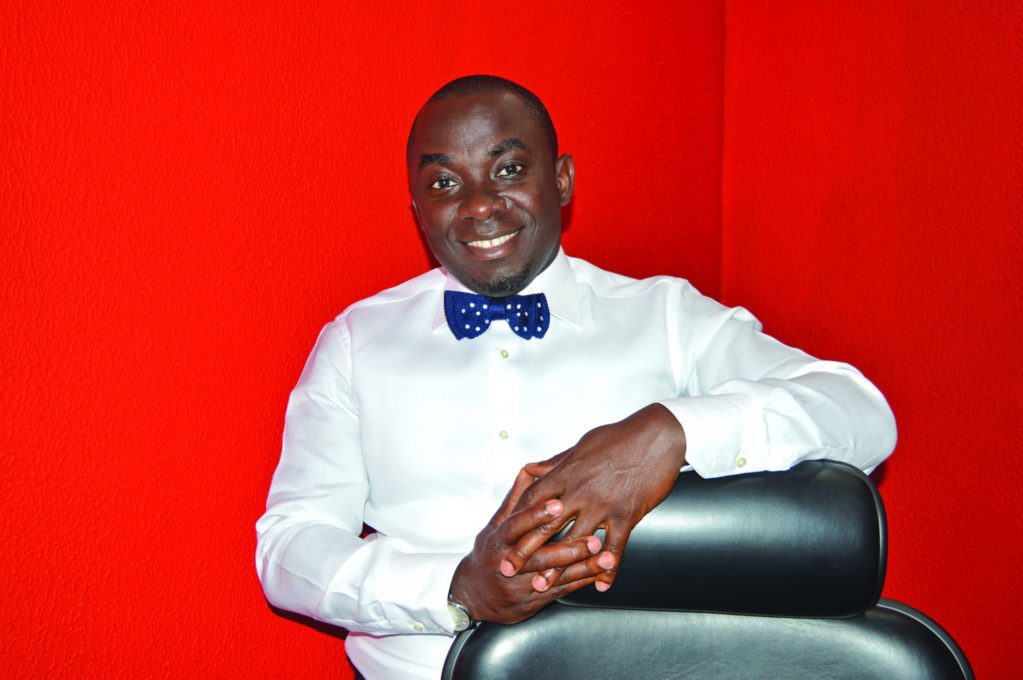In ancient Egypt, color was often used to provide insight on important matters. This use of color continues today. In psychology, color can be used as a tool for understanding your behavior and character traits. In the world of business, it is believed that one can use color to encourage sales, calm a crowd and boost the morale of a team.
When it came time for Mike Nyinaku to choose a name for his business seven years ago, he settled on the BEIGE Group. Under the color theory, beige is dependable, conservative and flexible.
Nyinaku is the founder and Chief Executive Officer of the BEIGE Group, a hospitality, trade, real estate and logistics company. BEIGE Capital is the flagship brand in the group’s portfolio. The company currently controls around 30% of the total assets and liabilities of the savings and loans market in Ghana.
Despite Nyinaku’s success, it has been a long and tough journey.
“I have failed at probably a lot more than I have been successful and even the ones we succeed at, we failed at least five times before getting it right,” says Nyinaku.
Loading...
Although relaxed, Nyinaku is dressed smartly with a shirt and bow tie, giving him an aristocratic look. Born to a banker mother and an accountant father, Nyinaku grew up with two siblings and had to fend for himself early in life when his dad was not around.
“I became an entrepreneur out of necessity,” says Nyinaku, as his voice resonates in his expansive, but minimalist, office.
“I started working at the age of 14 to raise extra money to take care of myself during the summer holidays. I was walking down the neighborhood and came across an overgrown lawn and asked the owner if I could mow it for a fee.”
He graduated from the Institute of Professional Studies in Ghana, where he studied accounting. While studying, Nyinaku needed money to feed himself. This forced him to go to small shops to offer his bookkeeping services.
“It was not that easy in the beginning. Out of every 20 to 30 shops I visited, I was able to make one sale, but that sale was enough to take care of my needs for about three days,” he says.
He managed to build a group of clients; around 25 small businesses used his general accountancy services, bookkeeping and savings planning. However it was his appointment at Deloitte which enabled Nyinaku to hone his skills. As an audit trainee, he gained invaluable exposure to practical accountancy.
“At Deloitte, I had the opportunity to be exposed to the financial reports of so many different companies across several different industries. If you are lucky, you get to do about 50 audits a year, you cannot place a value on that level of experience,” says Nyinaku.
As he completed more and more accounting jobs, Nyinaku came in contact with influential people across a number of sectors. One of those contacts made him an offer he could not refuse and, after two years, Nyinaku became a senior financial officer at OIC International, a United States-based organization with an office in Ghana that runs poverty alleviation programs. During this period, Nyinaku kept his private clients with Prime Consult, a firm he had started. He would dedicate two days in the week to meet his clients and manage their financial reports.
After eight years at OIC, Nyinaku’s private business grew and he could no longer manage the two. He made the difficult decision of quitting his job at OIC so he could focus on his own business interests. Nyinaku decided he wanted to venture into banking.
“I got introduced to the stock exchange during the windfall years where the stock exchange was making a lot of money for a lot of people and I had made quite a bit of money,” he says.
He had made around $500,000 which he used to start a micro-finance company. It was not smooth sailing. He applied for his micro-finance license from the Bank of Ghana but his application was rejected. The bank told Nyinaku he needed $1 million in start-up capital. He found a way around this by applying for a license through the Ghana Police Service. At that time, an alternative way of applying for a license to become a micro-finance license in Ghana was through an initiative with the police. This initiative gave birth to Nyinaku’s first banking company.
From humble beginnings, BEIGE Capital has grown to a company with 700 employees and an average return on equity of about 20% since 2010.
Nyinaku is frank about how he got this far.
“I have staked everything I have in my business. I believe if I want someone to invest in me, I have to make the commitment of investing everything I have and that is what I have done.”
Nyinaku took the risk of walking away from a promising corporate career to create something new. For many that risk can mean losing everything, for Nyinaku it was the starting point on his path to riches.
Loading...
